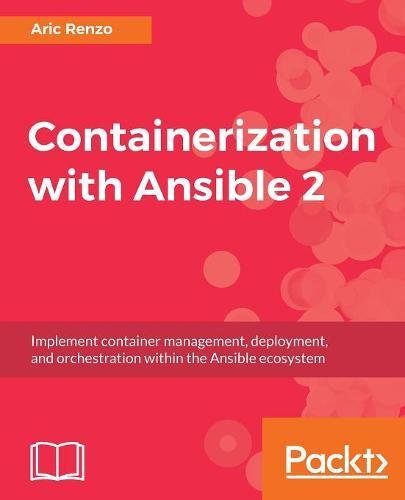

Most ebook files are in PDF format, so you can easily read them using various software such as Foxit Reader or directly on the Google Chrome browser.
Some ebook files are released by publishers in other formats such as .awz, .mobi, .epub, .fb2, etc. You may need to install specific software to read these formats on mobile/PC, such as Calibre.
Please read the tutorial at this link: https://ebookbell.com/faq
We offer FREE conversion to the popular formats you request; however, this may take some time. Therefore, right after payment, please email us, and we will try to provide the service as quickly as possible.
For some exceptional file formats or broken links (if any), please refrain from opening any disputes. Instead, email us first, and we will try to assist within a maximum of 6 hours.
EbookBell Team

0.0
0 reviewsAutomate the container lifecycle from image build through cloud deployment using the automation language you already know.
Key FeaturesToday many organizations are adopting containerization and DevOps methodologies to improve the flexibility and reliability of deploying new applications. Building custom application containers often means leveraging brittle and oftentimes complex Dockerfiles that can lead to cumbersome, multi-layered containers. Ansible Container brings a new workflow for managing the development of containers from development all the way through to production. The goal of this book is to get you up and running with Ansible Container so that you can create container images from Ansible roles, run containers locally, and deploy them to the cloud.
We'll progress from a simple, single container application, to a complex application consisting of multiple, connected containers. You'll learn how to run the application locally, how to deploy it to an OpenShift cluster running locally, and how to deploy it to a Kubernetes cluster running in the cloud. Along the way, you'll see how to use roles to define each image or micro-service, and how to share your completed project with the Ansible community. Next, you will be able to take full advantage of Ansible Container, and use it to automate the container lifecycle in your own projects.
By the end of this book,you will gain mastery of the Ansible Container platform by building complex multi-container projects ready for deployment into production.
What you will learnThis book is aimed at DevOps engineers, administrators and developers who already have some familiarity with writing and running Ansible playbooks, and want to learn how to use Ansible to implement containerization.
Table of Contents